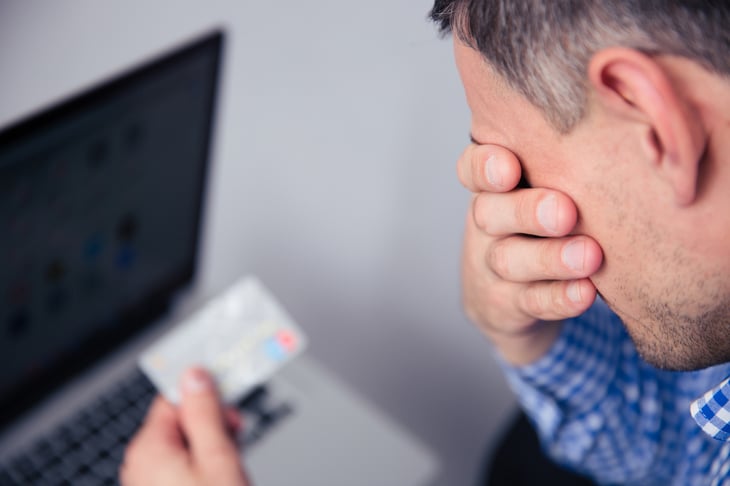
Shopping can cause problems, whether you are a compulsive shopper or an occasional impulse buyer. Spending more than you can afford, running a balance on credit cards and feeling stressed out from debt — all of these behaviors can pose a risk to your financial stability.
Turning the pattern around involves changing habits. Here are tips, strategies and skills to help stop impulse spending.
1. Shop only from a list

Using a list keeps you focused. Write down what you need, take that to the store, and do not buy anything that’s not on the list. It’s that simple.
Making lists clears your head and helps calm you when you’re on overload. Binge shopping often is a refuge from stress, so keeping stress from escalating is key.
2. Procrastinate

When you get the urge to buy, give yourself a cooling-off period — an hour, a day or a week. It’s a chance to come to your senses and make certain the item you want is something you can afford that truly contributes to your life.
3. Shop with cash

Leave the plastic at home. Take enough cash to purchase what you need and no more. You can’t spend what you don’t have.
4. Shop alone — or with a trusted friend

The confusion and chaos of shopping with kids or a spouse can lead you to make purchases without thinking or to buy stuff to pacify the noisy little ones. Shopping solo may give you a calmer, more in-control experience.
If you must shop with someone else, make it a trusted friend. Ask for the friend’s help staying focused on avoiding unplanned purchases.
5. Shop your own closet

If you have a shopping problem, you probably also have a closet problem — as in you’ve got more stuff packed in there than you need. Satisfy your hunter-gatherer impulses by trying on clothes you haven’t worn in a while, finding new looks and combinations.
6. Channel the impulse

At a beach near my home, you’ll find people avidly hunting for shells, beach glass and special rocks. They stare fixedly at the ground as they stroll slowly, reaching down to pick up treasures and add them to a bag heavy with beach loot. It’s apparent they’re doing something deeply satisfying that costs nothing.
Look for gratifying, cheap ways to quench your hunter-gatherer impulse. Expressing your creativity — crafting, painting, carving or baking — is another way to satisfy your weary soul.
7. Plan your splurges

Total withdrawal from shopping probably isn’t possible. Try setting aside funds for sporadic treats — once a week or maybe once a month — and pledge not to indulge yourself otherwise.
8. Start using a spending plan

Nothing’s more helpful in getting spending under control than having a realistic grip on your finances. You probably know that a budget is the way to do that. But you may not know how rewarding budgeting can be.
You Need A Budget, a Money Talks News partner, is one of many free tools available for tracking spending. You can get more tips in “Resolutions 2020: Budget Your Way to Financial Goals.”
9. Stop shopping as entertainment

If hitting the mall with friends is undermining your finances, change your idea of entertainment.
Find other things to do with any friends who are impulsive spenders.
And make friends who are careful with money and successful at saving. Their habits will likely rub off on you.
10. Don’t buy anything you can’t return

If you have saved receipts and purchased items you can return, undo the damage after you sober up from a shopping binge.
Before taking out your wallet in a store, ask about the return policy. Don’t shop a sale if purchases are final.
11. Get help

If overspending is damaging your finances, relationships or self-respect, get the help and support you need.
Debtors Anonymous is a free, 12-step program whose purpose is “threefold: to stop incurring unsecured debt, to share our experience with the newcomer and to reach out to other debtors.”





Add a Comment
Our Policy: We welcome relevant and respectful comments in order to foster healthy and informative discussions. All other comments may be removed. Comments with links are automatically held for moderation.